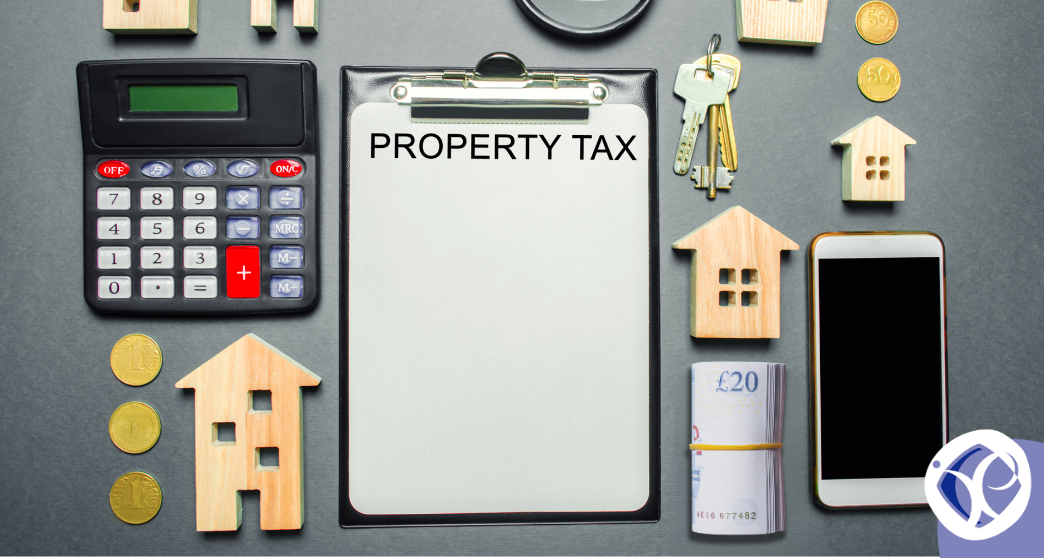
Understanding Property Income
and Its Tax Implications
Property income and its taxation can be daunting for individuals, trusts, and companies alike.
Whether you’re an experienced landlord or considering entering the property market, understanding how property income is taxed is crucial to ensuring financial efficiency and compliance with tax regulations.
(Read Time: Approx. 5 minutes)
Topics Discussed:
- Delving into taxation for property income, including differences for individuals and corporations.
- Exploring specific tax considerations such as Capital Gains Tax, VAT, and Making Tax Digital.
Property Income Explained
Property income is classed as rental income from either residential or commercial properties.
While managing a property business shares similarities with other trading activities in terms of accounting, the tax treatment exhibits notable differences that property owners must understand.
For Individuals and Trusts
- Accounting Basis: As of 6th April 2017, the cash basis became the standard for unincorporated property businesses with annual receipts below £150,000. However, opting for the accruals basis remains an option.
- Investment vs. Trading: Property income is considered an investment activity for taxation purposes. This classification has implications for Income Tax, Capital Gains Tax (CGT), and Inheritance Tax (IHT), potentially limiting certain tax reliefs.
- National Insurance Contributions (NICs): Property income does not attract NICs for individuals unless the property activities qualify as a trade (for example, a Furnished Holiday Lettings). Voluntary Class 2 NICs may be applicable under specific circumstances.
- Income Tax: Income generated from property within a tax year is subject to Income Tax, necessitating the preparation of accounts up to 5th April annually.
For Corporations
Corporate entities receiving property income must adhere to their chosen accounting year-end, with Non-Resident Landlord companies transitioning from income tax Self-Assessment to Corporation Tax as of 1st April 2020.
Notably, the main rate of Corporation Tax increased to 25% on 1st April 2023, with distinctions made for companies based on their chargeable profits.
Key Tax Considerations
- Capital Allowances: Ordinary property letting businesses cannot claim capital allowances for dwelling houses, with exceptions made for Furnished Holiday Lettings and certain other scenarios.
- Special Reliefs: Property income benefits from specific reliefs, such as Rent-a-Room Relief and Replacement of Domestic Items Relief, with different rules applying to Furnished Holiday Lettings.
- Making Tax Digital (MTD): From April 2026, landlords with rental income above £50,000 will need to comply with MTD for Income Tax, extending to those with over £30,000 from April 2027.
Delving Deeper into Taxation
Understanding the tax implications of property income extends beyond just the basics.
From ensuring all gross rents are correctly accounted for to the correct division of profits in jointly owned properties, the details matter.
Whether dealing with overseas rental properties, Furnished Holiday Lettings, or commercial premises, each scenario carries its unique tax considerations.
Capital Gains Tax (CGT)
Property disposals by non-UK residents on UK residential property and UK residents disposing of residential property must be reported within a specific timeframe, highlighting the importance of timely compliance.
VAT and SDLT
Residential property letting is exempt from VAT, but commercial property letting offers the option to charge VAT.
Stamp Duty Land Tax (SDLT) considerations are also pivotal, especially with the introduction of surcharges for non-UK residents and additional rates on purchases of residential properties.
Annual Tax on Enveloped Dwellings (ATED)
ATED applies to residential properties held by companies or partnerships with a corporate partner, with exemptions for rental properties let on a commercial basis.
Approaching the Subject
Property income and taxation is filled with complexities that require a thorough understanding to manage effectively.
Capital allowances, special reliefs, and digital tax compliance staying informed and seeking expert advice is key to maximising tax efficiency and adhering to regulatory requirements.
Whether you’re an individual landlord, a trust, or a corporation, adopting a proactive approach to understanding and managing the tax implications of your property income can pave the way for financial success and compliance peace of mind.
Contact us today at 01772 788200 to find out more about how we can help, or WhatsApp us out-of-hours at 07787 010190.
Kind regards,
Ilyas Patel
